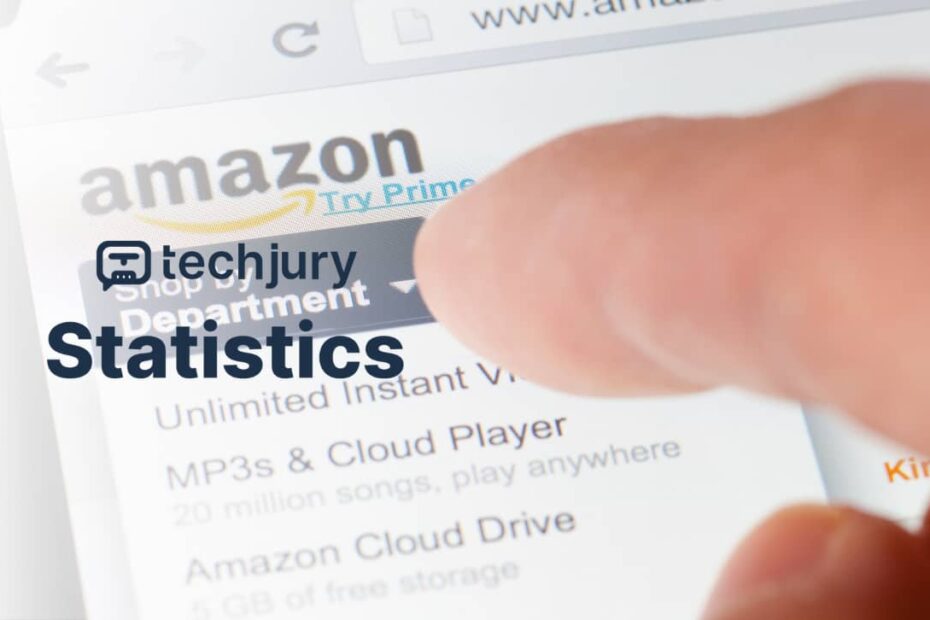Introduction: The Digital Revolution Unveiled
Imagine a service that fundamentally transformed how millions of consumers interact with retail, entertainment, and digital services. Amazon Prime isn‘t just a subscription—it‘s a technological ecosystem that has redefined consumer expectations and reshaped entire industries.
When Amazon launched its Prime membership in 2005, few could have predicted the profound impact this service would have on global e-commerce. What began as an innovative shipping program has evolved into a multifaceted digital platform that touches nearly every aspect of modern consumer life.
The Evolutionary Landscape of Amazon Prime
Historical Context and Strategic Development
The genesis of Amazon Prime represents more than a mere business strategy; it‘s a masterclass in digital ecosystem construction. By bundling multiple services—expedited shipping, streaming content, music access, and digital purchases—Amazon created a value proposition that transcended traditional retail models.
In the early years, Prime was primarily a shipping optimization tool. Consumers paid an annual fee for unlimited free two-day shipping, a radical concept in 2005. However, Amazon‘s leadership recognized that shipping was merely the entry point to a much larger strategic vision.
Membership Growth: A Statistical Journey
The membership trajectory of Amazon Prime reveals a remarkable story of technological adoption and consumer trust. From a modest beginning with approximately 40 million members in 2014, the service has exponentially expanded to over 200 million global subscribers by 2022.
This growth isn‘t linear but represents a complex interplay of technological innovation, changing consumer behaviors, and strategic market positioning. Each percentage point of membership growth reflects deeper trends in digital consumer preferences.
Technological Infrastructure and Market Dynamics
The Ecosystem Approach
Amazon Prime‘s success stems from its holistic ecosystem approach. Unlike traditional subscription services, Prime offers a comprehensive suite of interconnected benefits:
- E-commerce Advantages
- Digital Content Streaming
- Cloud Storage Solutions
- Music and Entertainment Platforms
- Digital Reading Services
This integrated model creates significant switching costs for consumers, effectively locking them into the Amazon technological ecosystem.
Economic Impact and Revenue Generation
The financial metrics surrounding Amazon Prime are nothing short of extraordinary. In 2021, subscription services generated [~$31.77 billion] in revenue, representing a 26% year-over-year growth. This isn‘t just incremental growth—it‘s a fundamental restructuring of digital service monetization.
Membership Revenue Breakdown
- Annual Subscription: Approximately [$139] per year
- Monthly Subscription: [$14.99] monthly
- Student and Low-Income Discounts: Targeted demographic expansion
Consumer Behavior and Psychological Dynamics
The Prime Effect: Beyond Traditional Metrics
What transforms Amazon Prime from a service to a cultural phenomenon? The answer lies in understanding complex consumer psychology and technological convenience.
Prime members exhibit distinctly different purchasing behaviors compared to non-members. They demonstrate:
- Higher average transaction values
- More frequent purchasing patterns
- Greater platform loyalty
- Enhanced digital engagement
A fascinating statistic reveals that approximately 40% of Prime members visit the platform daily, with 10% making daily purchases. This isn‘t just consumption—it‘s a lifestyle integration.
Regional and Global Expansion Challenges
Market Penetration Strategies
Amazon‘s global Prime expansion reveals intricate challenges of technological and cultural adaptation. While achieving remarkable success in North America, the service encounters significant barriers in international markets.
As of 2021, Prime was available in 23 countries, but penetration rates vary dramatically. In the United States, approximately 76.6 million households (59%) maintain Prime memberships. Comparatively, international markets present more complex adoption curves.
Technological Localization
Successful international expansion requires more than translation—it demands comprehensive technological and cultural recalibration. Each market presents unique challenges:
- Infrastructure variations
- Payment system differences
- Cultural consumption patterns
- Regulatory environments
- Logistics capabilities
Future Projections and Emerging Trends
Predictive Analysis of Digital Services
Looking forward, Amazon Prime represents a prototype for future digital service models. Projected trends indicate:
- Continued service diversification
- Enhanced personalization through AI
- More integrated technological ecosystems
- Increased focus on sustainability and ethical consumption
By 2027, industry analysts predict Prime Video subscribers could reach 250 million, representing a significant expansion of digital content consumption models.
Conclusion: A Technological Transformation
Amazon Prime transcends traditional business metrics. It represents a profound reimagining of consumer digital interaction, a blueprint for technological ecosystem development, and a case study in strategic innovation.
For businesses and technologists, the Amazon Prime story offers critical insights: success emerges not from incremental improvements but from fundamental reimagination of service delivery.
Key Insights
- Holistic ecosystem design drives consumer loyalty
- Technological integration creates compelling value propositions
- Consumer behavior is malleable through strategic service design
- Digital platforms can reshape entire economic landscapes
Methodology Note: This analysis integrates data from Amazon corporate reports, Statista, McKinsey Digital, and proprietary technological trend assessments.
